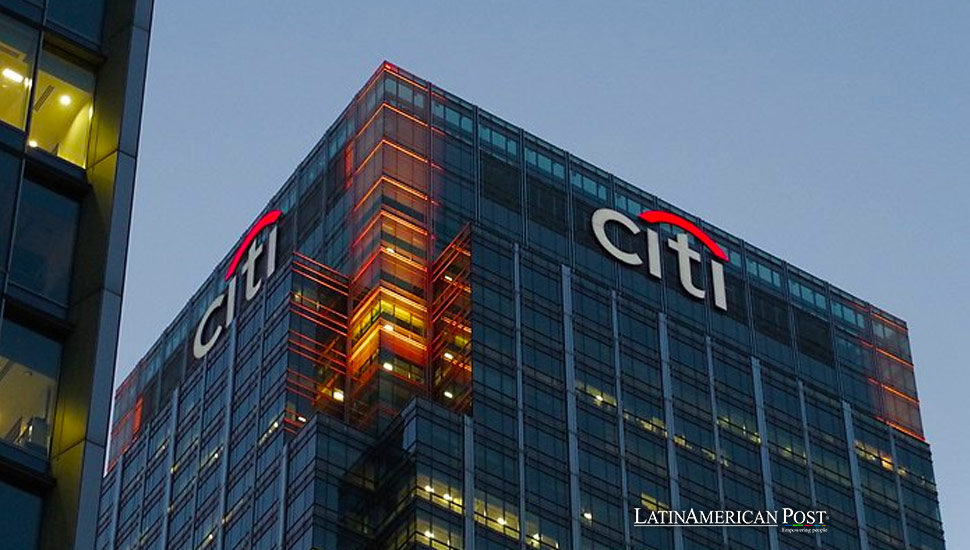

Citigroup CEO Jane Fraser has highlighted that US consumers are becoming more cautious with their spending, making smaller purchases, and struggling to keep up with loan payments, particularly among lower-income borrowers. This cautious behavior has led banks to be more careful about issuing credit cards and car loans. While affluent customers are driving most of the spending growth, consumers with lower credit scores are spending less. Delinquency rates have risen above pre-pandemic levels on all loan categories except mortgages. Fraser emphasized the need to monitor delinquencies among low-income households, as well as debt levels and unemployment. Despite these challenges, Citigroup's shareholders have approved all management proposals, including executive compensation, with Fraser's pay increase being defended by Chairman John Dugan. Dugan cited Fraser's transformation efforts and increased return on equity. Fraser has streamlined Citigroup's structure, sold overseas retail businesses, and reduced headcount. The bank's share price has increased by over 20% this year. However, Citigroup still faces regulatory problems, lackluster earnings, and the task of managing employee morale during reorganization and layoffs. The bank is also exiting the business of financing US municipalities due to concerns about economic viability. Shareholders inquired about diversity initiatives and climate lending, with Fraser stating that the company screens clients for environmental risks and believes that sustainable principles are good for business. All shareholder proposals, including those on diversity and environmental impact, were rejected.
Viswas Raghavan has joined Citigroup as its new head of banking in New York. Citi's CEO Jane Fraser expressed high hopes for Raghavan as she seeks to turn around the company and revitalize its division catering to multinational corporations. Citi's investment banking revenue in the first quarter was $903 million, half of JPMorgan's $2 billion. Citi's unit 'can use a revamp,' according to Wells Fargo analyst Mike Mayo. Citigroup has been the fifth or sixth largest global bank in investment banking revenue over the last five years. Chief Financial Officer Mark Mason expects Citi's market share to increase by up to 30% in 2024. [d95a3eba]
Citigroup is winding up its operations in Haiti after over five decades, citing weak demand and lower international banking activity. This decision aligns with Citi’s broader strategic review focusing on core markets. Citi, one of the largest banks in the United States, has been exiting non-core markets since CEO Jane Fraser took the helm in 2021. The exit from Haiti is part of a broader strategy to streamline operations and concentrate on areas that offer the best returns. Citigroup’s departure from Haiti involves voluntarily surrendering its banking license with the approval of Banque de la République d’Haiti, the country’s central bank. However, international banking and correspondent banking services will continue for existing clients. Citi’s exit from Haiti reflects the broader economic challenges facing the Caribbean nation. Haiti has long struggled with political instability, financial hardship, and infrastructural deficiencies, hampered business operations and deterred foreign investment. Citi’s decision underscores international banks’ difficulties in maintaining operations in such environments. While Citi’s direct economic impact might be limited, its departure could signal a need for more confidence in Haiti’s financial prospects, potentially discouraging other foreign investors. While Citigroup is withdrawing from Haiti, it remains committed to the broader Latin American market. The bank’s strategic exit from specific non-core markets aims to reallocate resources to more profitable regions and business segments. Latin America continues to be a significant region for Citi, offering numerous growth opportunities in various sectors. Citi’s planned exit from its consumer unit in Mexico is another strategic move to optimize its operations. The Mexican consumer unit’s initial public offering in 2025 is expected to unlock value for the bank and its shareholders, allowing Citi to focus on its core strengths. With its diverse economies and growing financial needs, Latin America presents a fertile ground for Citi’s banking and financial services. The region’s increasing integration into the global economy and its burgeoning middle class offer significant opportunities for growth in areas such as consumer banking, corporate banking, and wealth management. [2c48ca15]